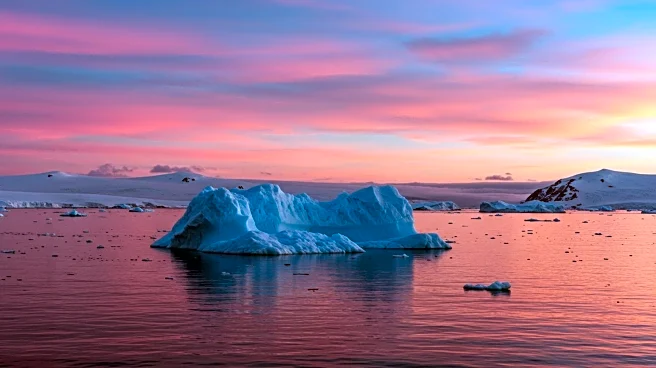What is the story about?
What's Happening?
Antarctica is experiencing rapid and alarming changes, with sea ice shrinking, ice shelves melting faster, and ice sheets nearing tipping points. These changes are affecting vital ocean currents, which are showing signs of slowing down. The West Antarctic Ice Sheet and parts of East Antarctica are losing ice, contributing to rising sea levels. These developments are expected to have long-lasting impacts on global climate systems, affecting wildlife and ecosystems both locally and globally.
Why It's Important?
The changes in Antarctica have significant implications for global sea levels and climate systems. As ice sheets melt, they contribute to rising sea levels, threatening coastal communities worldwide. The slowdown of ocean currents could disrupt climate regulation, affecting marine ecosystems and the distribution of heat and carbon dioxide. These changes highlight the urgent need for global action to reduce greenhouse gas emissions and mitigate climate change impacts.
What's Next?
The international community must prepare for the consequences of these abrupt changes. This includes implementing conservation measures to protect Antarctic ecosystems and taking decisive action to reduce emissions. Governments, businesses, and coastal communities need to plan for a future of increased climate variability and rising sea levels. The choices made now will determine the extent of future impacts and the resilience of global systems to these changes.
Beyond the Headlines
The situation in Antarctica underscores the interconnectedness of global climate systems and the far-reaching effects of environmental changes. It highlights the importance of international cooperation in addressing climate change and protecting vulnerable ecosystems. The rapid changes in Antarctica serve as a warning of the potential for irreversible impacts if greenhouse gas emissions are not curtailed.















